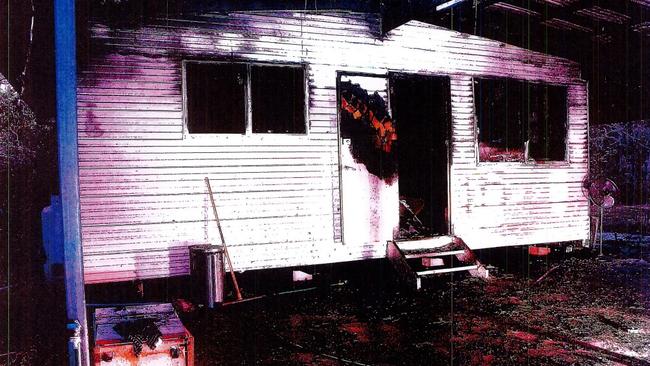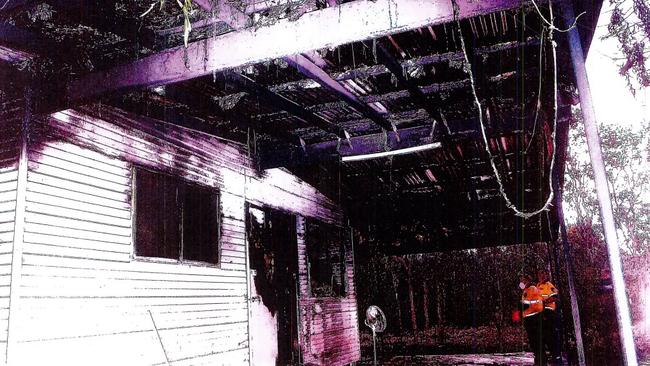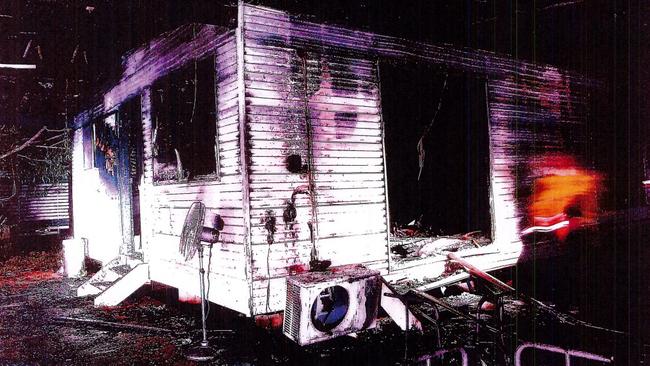Alvesta Kelly, 37, sentenced without interpreter for Bees Creek blaze
A Supreme Court judge says he has ‘no doubt’ Holtze prison will be able to meet the 24/7 two-on-one care needs of a severely disabled man who burned down a Bees Creek home.

Police & Courts
Don't miss out on the headlines from Police & Courts. Followed categories will be added to My News.
A profoundly disabled Aboriginal man with no interpreter has been sent to prison for burning down a Bees Creek home, with the judge saying he had “no doubt” the Darwin Correctional Centre would be able to provide necessary care.
Alvesta Kelly, 37, was sentenced to two years and two months behind bars at the Supreme Court on Tuesday, despite the scheduled language interpreter not being available.
The court heard Kelly needed around the clock support from two carers for a major neurocognitive disorder and other mental health issues.

On April 7 last year he had been living at a home on Gulnare Rd owned by NDIS provider Amazing Grace Community Service when he became angry and lit a pile of clothes and towels on fire in a timber wardrobe.
Once the blaze was well alight, he calmly walked out of the house past one of his carers without saying anything.
The carers smelled smoke and tried to extinguish the fire but the entire building was soon engulfed, destroying the home and everything inside.
No one was injured and no neighbouring properties were impacted.
Justice John Reeves told the court the insurers had priced the damage at $351,000, but the owner’s victim impact statement claimed the cost to rebuild was much higher.
“You showed a total disregard for the safety of the two carers who were present at the time,” Justice Reeves said.

Kelly grew up in Gunbalanya and had experienced a severe substance use disorder for alcohol, cannabis and inhalants, which doctors believed likely contributed to his amnesia, schizophrenic symptoms and “severe and long term cognitive impairment”.
“This is causally associated with his behaviour in particular leading to poor frustration tolerance, emotional dysregulation and markedly impaired judgment and limited strategies to manage anger,” Justice Reeves said.

Justice Reeves said Kelly’s complex health needs made his sentencing “particularly complicated” but “ultimately did not dispose of the primary purpose” of imposing a punishment.
“I may have reached a different conclusion if your prospects for rehabilitation had been stronger, and the threat of your reoffending smaller,” he said.
“I have no doubt that the personnel at the correctional centre will be able to provide the necessary support to you for your condition.”
Defence lawyer Courtney Marthick told the court her client, who sat shaking in the dock throughout sentencing, had given instructions to proceed without the interpreter and she would explain what had happened when one was available.
Kelly pleaded guilty to arson and breach of bail, and was granted a non-parole period of 13 months.





